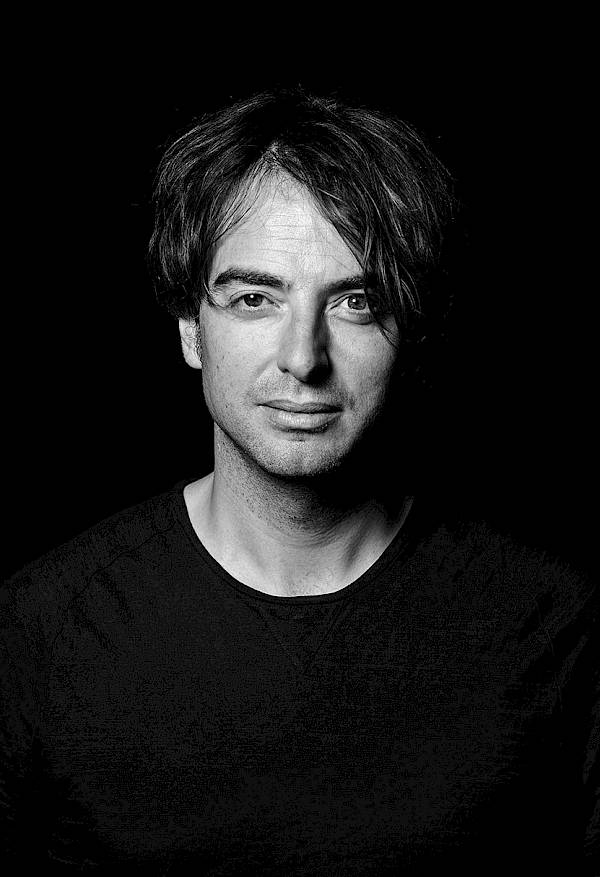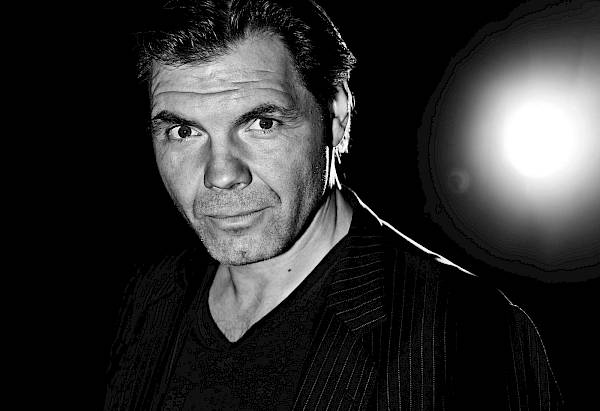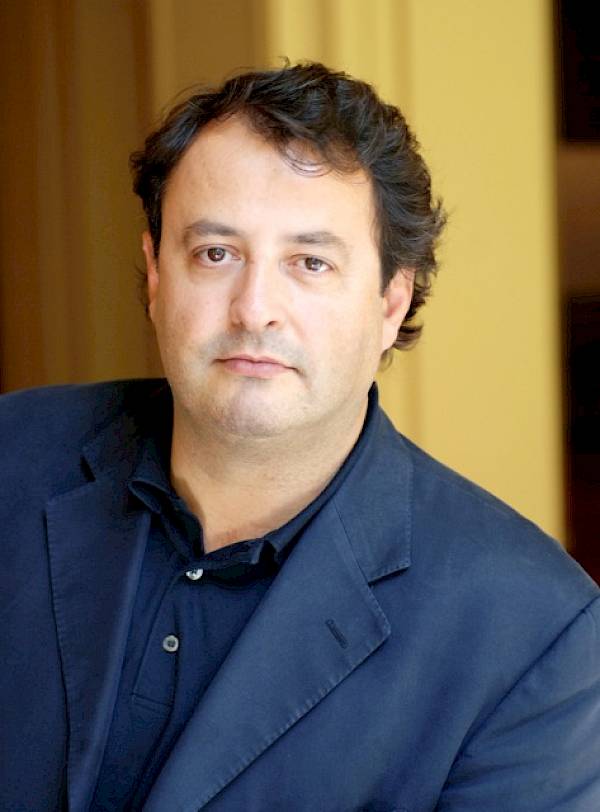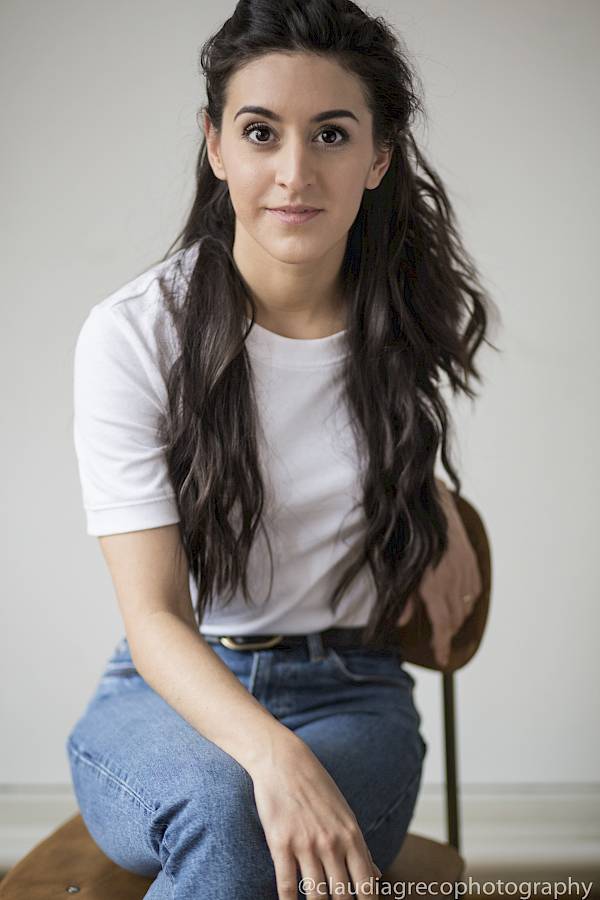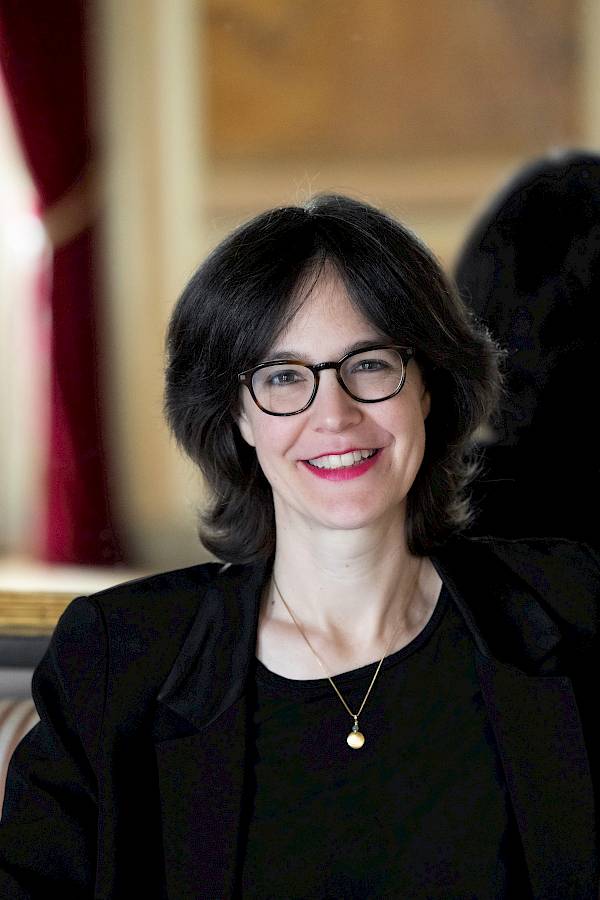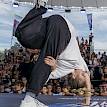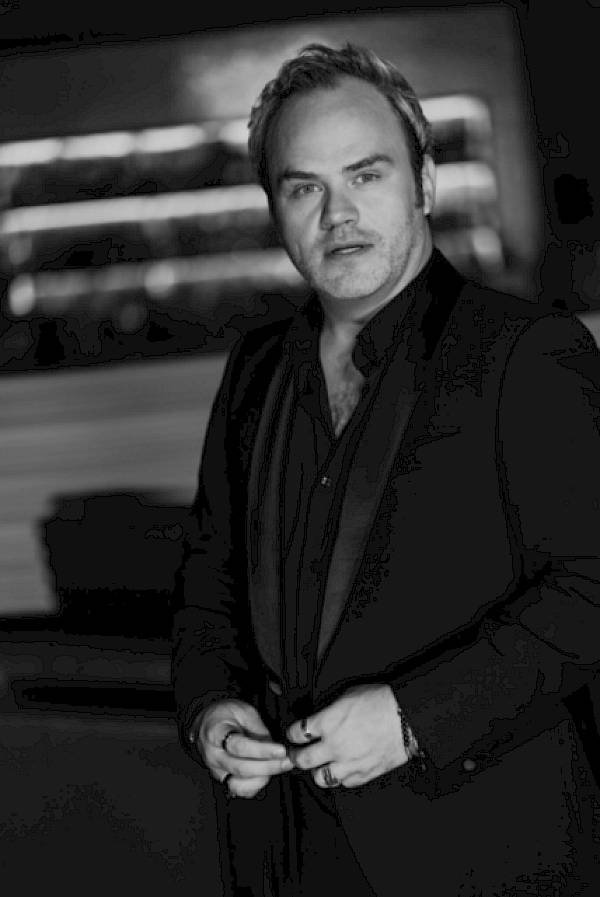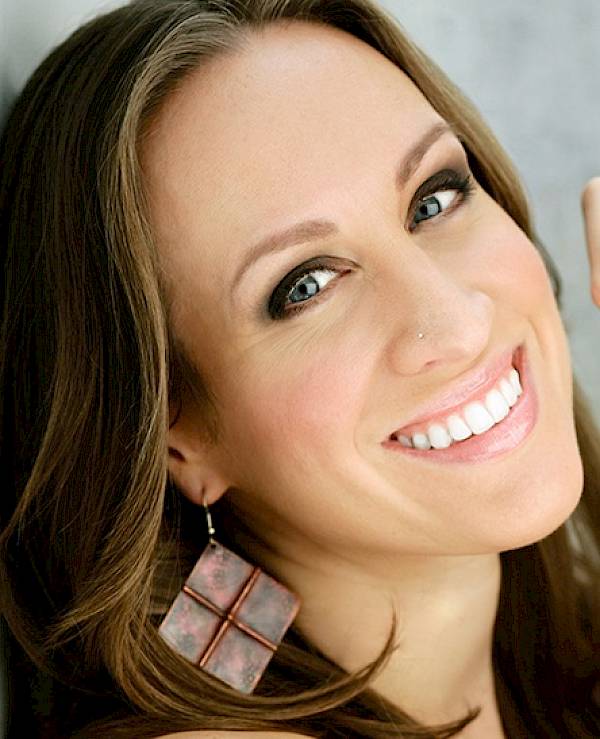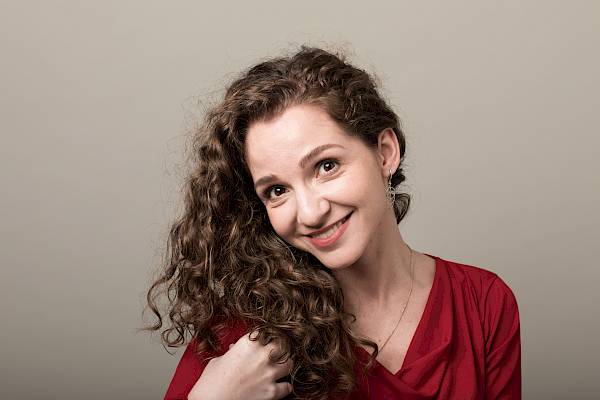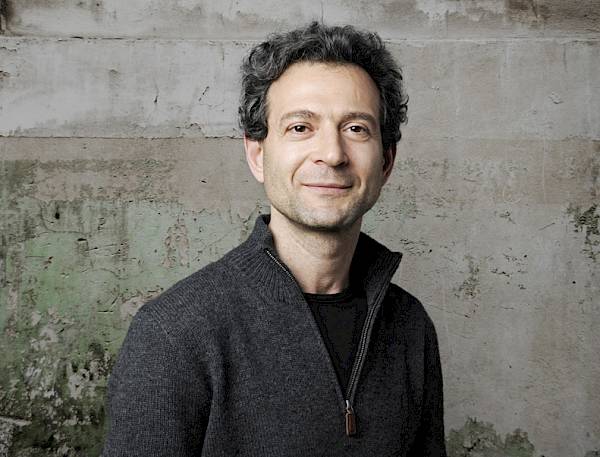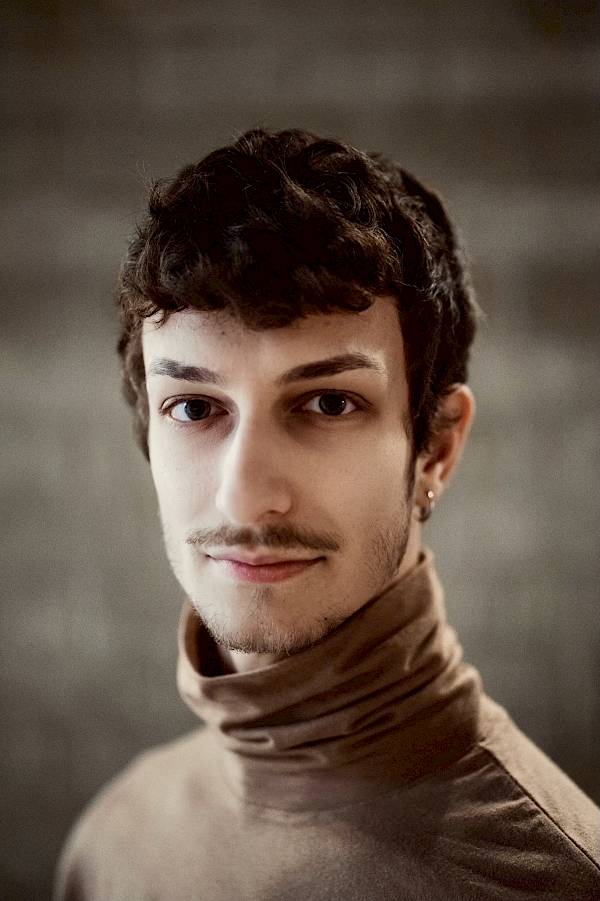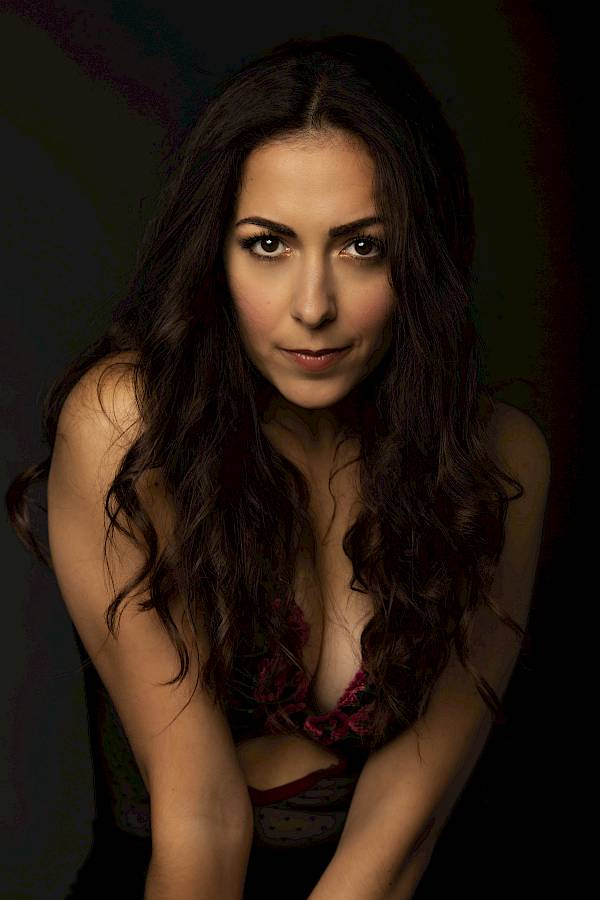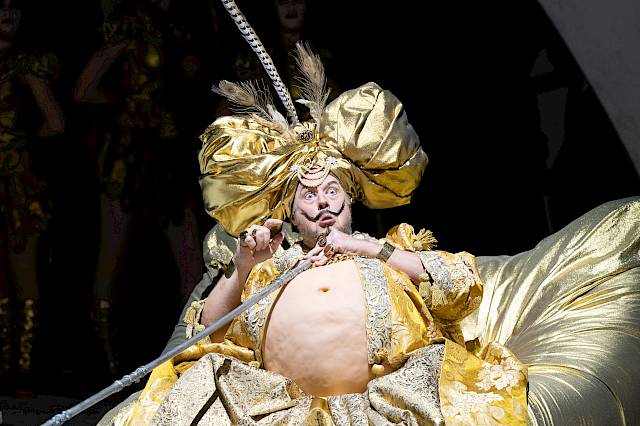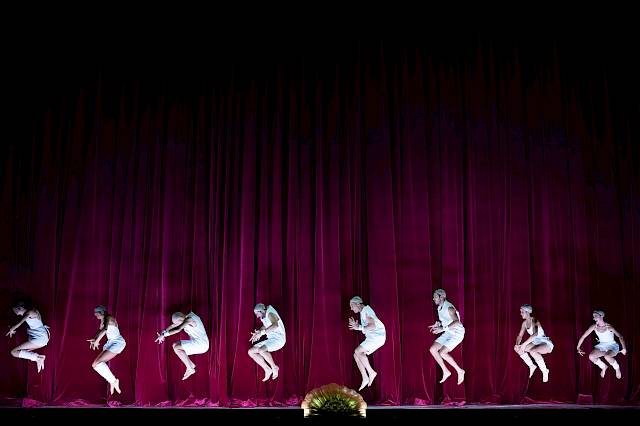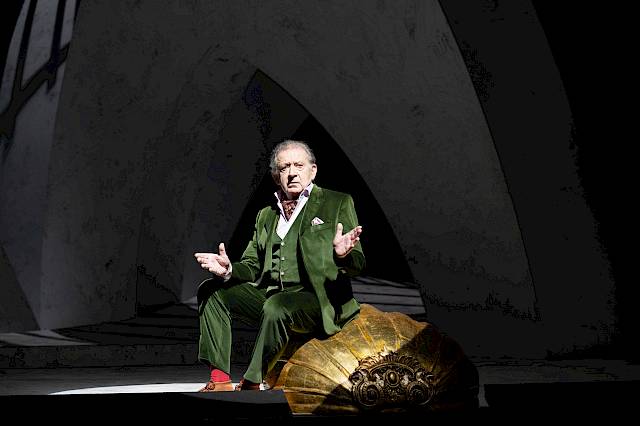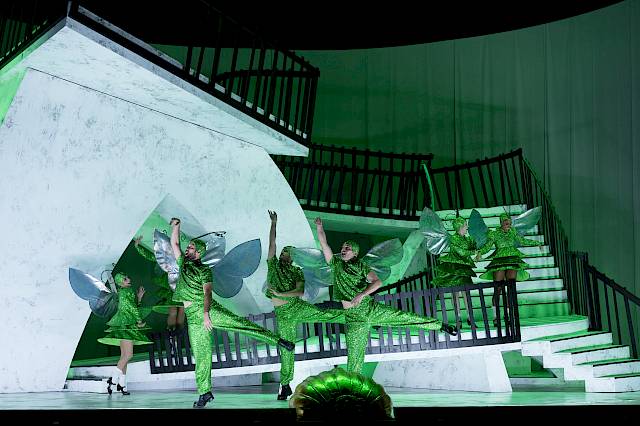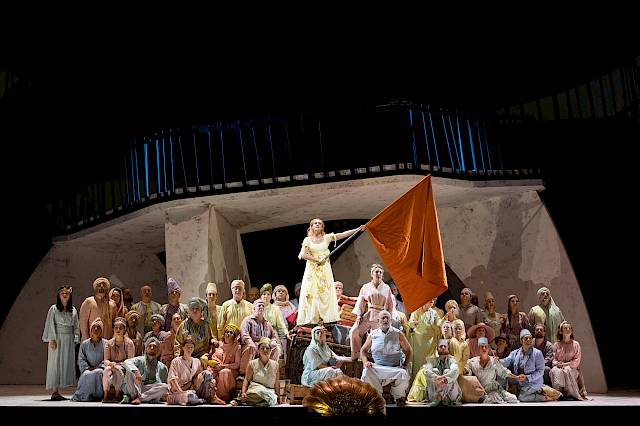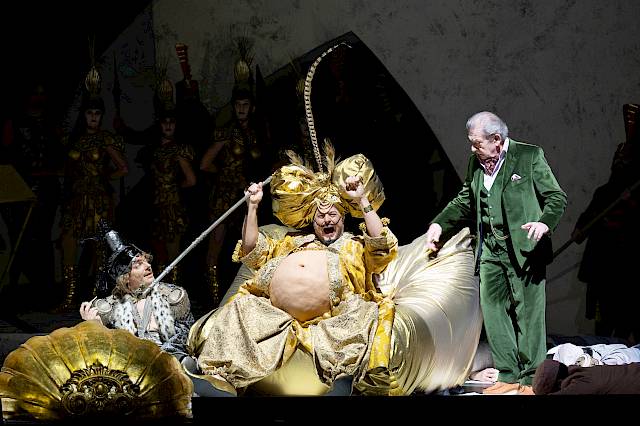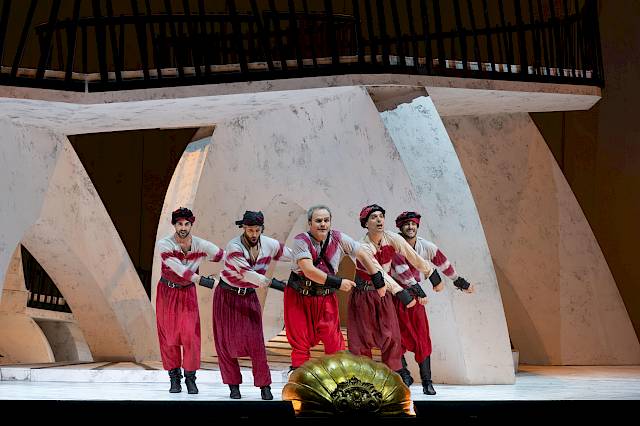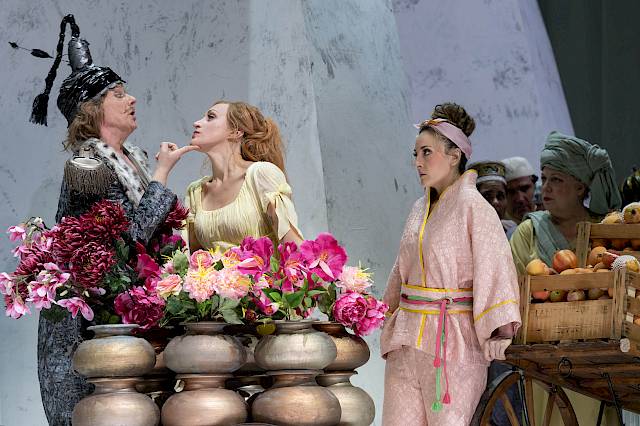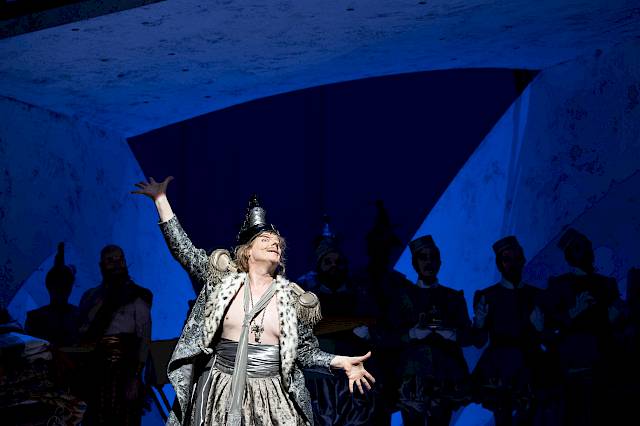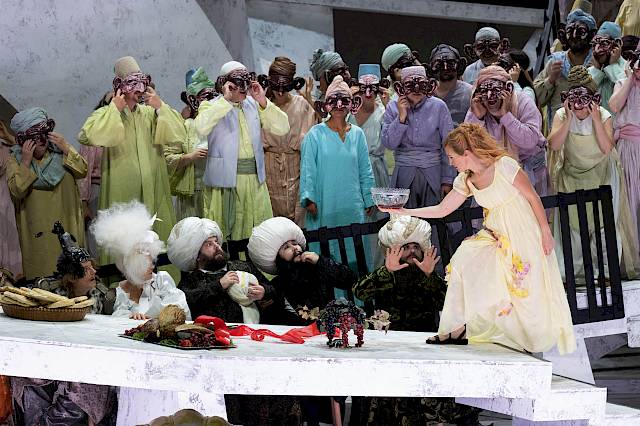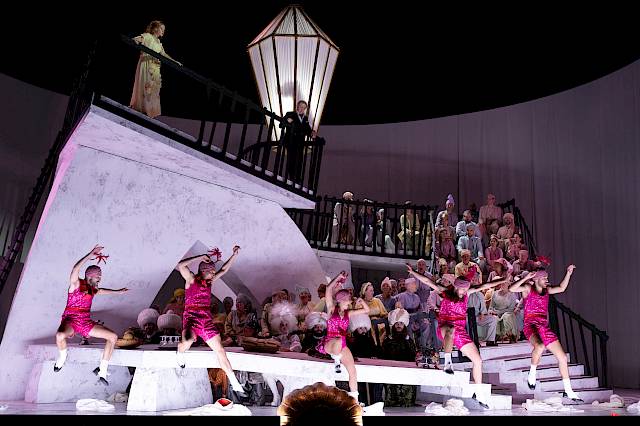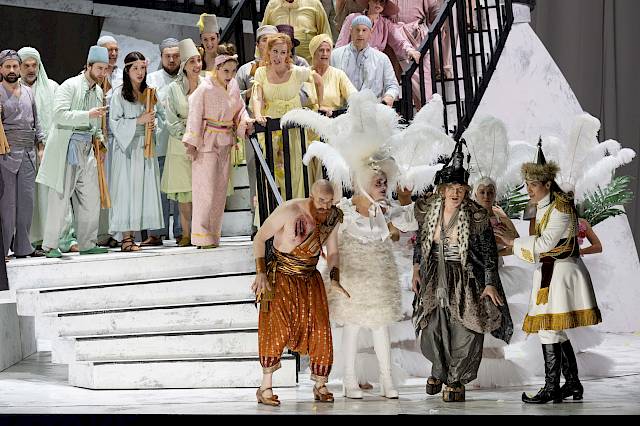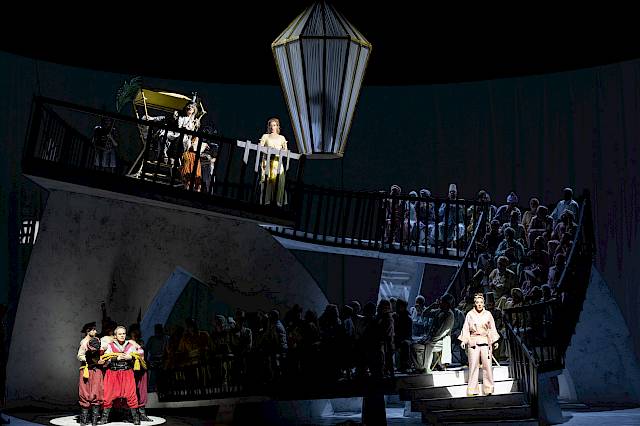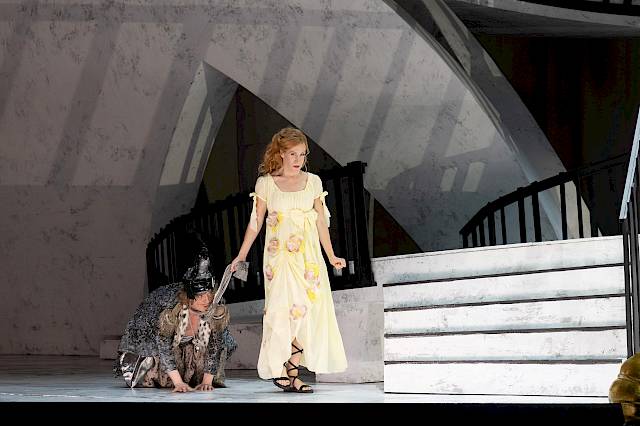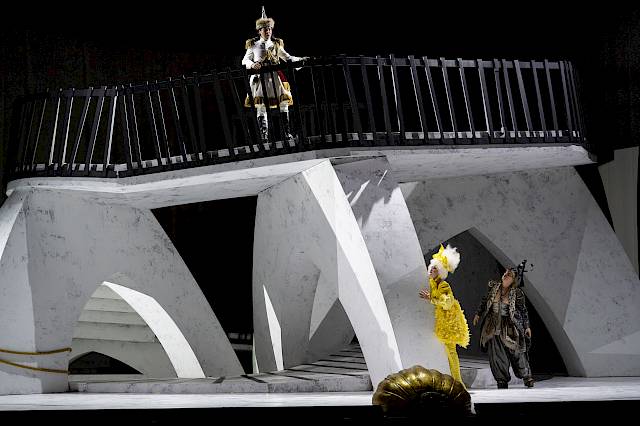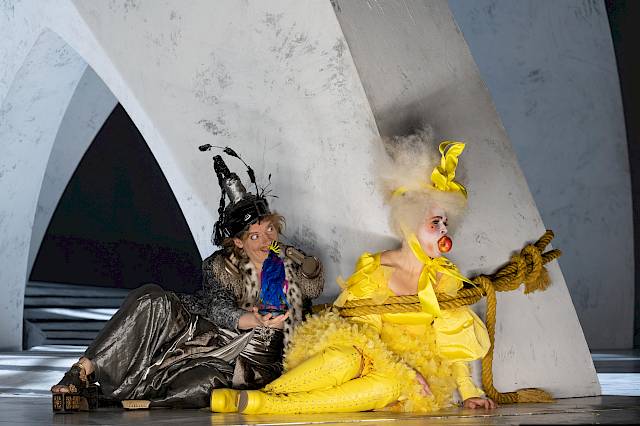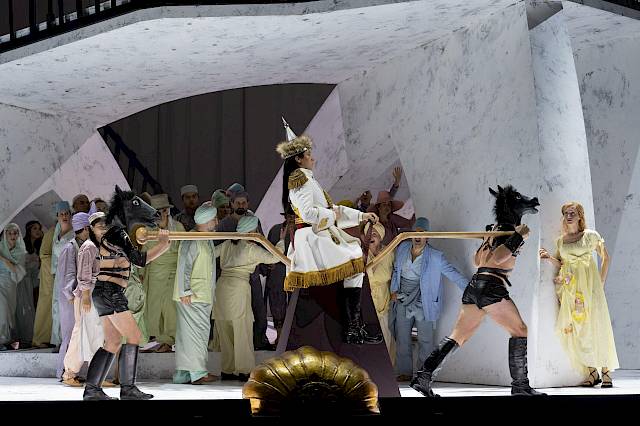Act I
At the market in Lahore: Bababeck, the governor's cupbearer, dashes into the vibrant activities with his servant Kaliboul. Bababeck is in high spirits, as his daughter Périzade is finally getting married today.
A roar can be heard in the distance – another uprising in the governor's palace is underway. While the commoners rush to the palace, Maïma, the florist, and Balkis, the orange vendor, stay behind. Maïma reveals to her friend that she lost her loved ones some time ago: the dog she grew up with, who was kidnapped by soldiers, and her boyfriend Saëb, who disappeared suddenly.
Balkis's lover Xaïloum shows up. Rampaging is one of his main business practices. Once again, he has been involved in the revolt.
The Great Mogul arrives. Out of anger at his rebellious people, who have yet again defenestrated their governor, he announces that he will now appoint a dog as successor – much to the dismay of Bababeck, who had dreamed of taking the governor's post. The Great Mogul appoints him instead as the Grand Vizier, who is to announce the governor's orders.
Balkis and Maïma are worried about Xaïloum, who has been arrested for rebellion. As the new governor's procession passes by, Maïma is beside herself when she recognizes her dog in the palanquin and sees Saëb leading the guard.
Act II
In order for Périzade's wedding to take place, Bababeck needs a marriage certificate and official permission for Périzade to leave the palace and move in with her husband. Both papers must be signed by the new governor. But Bababeck is thoroughly unsuccessful in getting Barkouf's paw print, almost getting bitten in his attempt.
Périzade's groom is Saëb, who is being forced to marry and is mooning over his old love Maïma. Meanwhile, Périzade and Bababeck look forward to the wedding feast.
Kaliboul's attempt to have Barkouf sign the marriage documents is also without avail. Marked by scratches all over his body, he refuses to see Barkouf ever again. But no wedding can take place without official approval. Bababeck is beside himself.
Then Maïma shows up, looking for her dog. She tells Bababeck that she is the rightful owner of Barkouf. Bababeck seizes his opportunity to appoint Maïma as the dog's secretary and interpreter, using her as a conduit to carry out his own orders. Maïma agrees and soon has the document authorized, having no idea that the young man to wed Bababeck's daughter is in fact Saëb.
The governor's audience draws near. Maïma translates Barkouf's bark: the tax cuts demanded by the people are approved, and those sentenced to death are pardoned, including Xaïloum. Bababeck rages, Balkis is relieved, and the people cheer.
Kaliboul's effort to have Barkouf sign the marriage documents is also without avail. Marked by scratches all over his body, he refuses to see Barkouf ever again. But no wedding can take place without official approval. Bababeck is frantic.
Then Maïma shows up, looking for her dog. She tells Bababeck that she was the rightful owner of Barkouf. Bababeck seizes his chance and appoints Maïma as the dog's secretary and interpreter, in order to enforce his own orders through her. Maïma agrees and soon has the documents authorized, having no idea that the young man to wed Bababeck's daughter is in fact Saëb.
The governor's audience draws near. Maïma translates Barkouf's bark: the tax cuts demanded by the people are approved and those sentenced to death are pardoned, including Xaïloum. Bababeck rages, Balkis is relieved, and the people cheer.
When the newlyweds Périzade and Saëb appear, Maïma recognizes her former lover. The union is not valid, however, until the bride is permitted to move in with her groom. Bababeck makes the request. Barkouf barks – according to Maïma, a decisive no! The people praise their governor. Bababeck, Périzade and Kaliboul leave in a huff.
Act III
Xaïloum climbs into the palace to find Balkis, who is now living there with Maïma. In the process, he witnesses a conspiracy: Bababeck and his men are planning to poison Barkouf at the next chance. Xaïloum wants to tell Balkis and Maïma about what he ha seen, but at first, he can't get a word out.
Saëb and Maïma talk things out. Saëb tells her about the circumstances of this arranged marriage: he was coerced in order to save the life of his father, who was involved in a plot.
The governor invites the people to a banquet. Maïma invites Bababeck and his accomplices to raise their glass to Barkouf. But through their hesitation, they expose themselves: The wine has been poisoned. As the wrath of the people descends upon the conspirators, Saëb announces that the Tartars are about to attack the city and that Barkouf is already mounting defense. The people follow their brave leader into battle.
Barkouf dies in the slaughter.
The new circumstances are sealed by an order from above: Maïma marries Saëb and becomes the new governor. Périzade agrees to the divorce, and Bababeck is stripped of all his offices. One last time, Barkouf is celebrated as the greatest leader of all.


